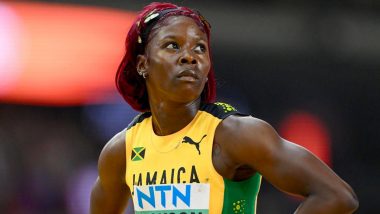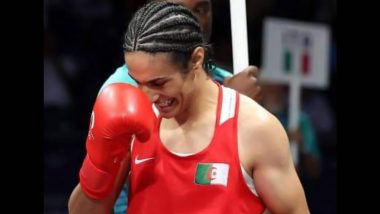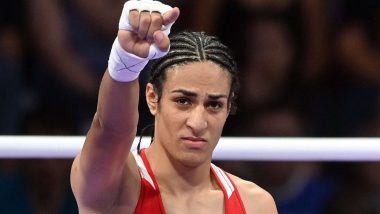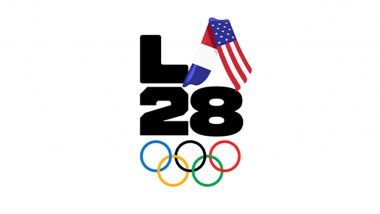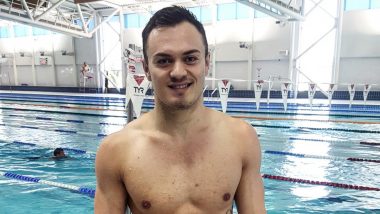Saint-Denis (France), Jul 31: Dozens of hurdlers and sprinters will get a second chance at their once-in-a-lifetime moment thanks to a new rule at the Olympic track competition. That's the beauty of the repechage rounds.
Starting on Saturday at Stade de France, all hurdlers and runners in the 200 through 1,500-meter races will get another start if they don't qualify in their opening heat. Paris 2024: Sex Marathon in Olympics! Rise of Dating App Matches to Condom Distribution, Internet Reacts as Athletes Look For Hookups in the City of Love.
Many athletes don't want any part of the repechage rounds. Some have never heard of the repechage. Others can't pronounce it (reh-puh-SHAAJ).
Most agree: They want no part of it — unless something disastrous happens, of course.
“It's kind of like a make-up quiz,” said Masai Russell, the 100-meter hurdles champion at the US Olympic trials.“If it didn't go right the first time, you could get it right the second time. That's really good because I feel like with the hurdles especially, anything can happen. I think it's a really great thing that they're doing that.”
Russell quickly added, “But, I'm not planning on using it, though.” The repechage concept was taken from rowing, wrestling and martial arts. Based on a French word that means “second chance,” the word has taken on its meaning when applied to sports — mostly rowing, sometimes wrestling or martial arts and, now, track. In the past, runners who didn't receive automatic spots into the semi-finals by finishing near the top of their first-round heats could back in if they were among a predetermined number of fastest times among the non-automatic qualifiers. They were referred to as "lucky losers.” Are Gold Medals at Paris Olympics 2024 Really Made of Gold? Know All About Yellow Metal Awarded to Winners.
That means racers would finish and then watch the times of every other heat, hoping their time held up so they could advance. It could be confusing for fans.
Now, instead, anyone who doesn't earn one of those automatic spots will line up for another race — the repechage round — to determine the final spots in the semis.
The repechage rule should make events more straightforward. When the repechage rule was passed in 2022, World Athletics president Sebastian Coe called it a change that would make “these events more straightforward for athletes and will build anticipation for fans and broadcasters.” It's a concept that might come in most handy for hurdlers, who have a higher likelihood of tripping and falling over a barrier, even in the early rounds when they're taking it easy.
“I actually haven't thought much about it,” American 400-meter hurdler and medal favourite Rai Benjamin said. “But, I don't have any plans to be in that heat, to be honest.” Medal favourites who could have benefited from repechage. It certainly could've helped Jamaican 200-meter world champion Shericka Jackson at the 2021 Tokyo Games. Paris Olympics 2024: Why Do Athletes Bite Their Medals? Know Reason Behind the Ritual.
A medal favourite, Jackson decelerated midway through her preliminary heat and by the time she realized others were gaining ground, she couldn't speed back up. She finished fourth and didn't get to run in the final.
Events that include the repechage round will go like this: First round, repechage round, semi-finals, final. This ensures that athletes involved will have at least two chances to run on the track, instead of just one. Hurdler Nia Ali, the 2016 Olympic silver medalist, could've used a repechage at the 2022 world championships in Eugene, Oregon. She bumped the second-to-last hurdle and didn't advance. Like that, she was finished. Under this sort of format, she could have worked her way back into medal contention.
“It's good for fan engagement, which is very important,” Benjamin said.
A handful of events won't get a repechage round. The change, however, does not impact the 100 meters because the larger number of qualifiers for that event already adds a “preliminary” round for some runners. For distance events such as the 3,000-meter steeplechase and the 5,000, there are no repechage rounds because those athletes need more time to recover. The men's and women's 10,000 meters and marathons each stage only a final. (AP)
(This is an unedited and auto-generated story from Syndicated News feed, LatestLY Staff may not have modified or edited the content body)













 Quickly
Quickly









